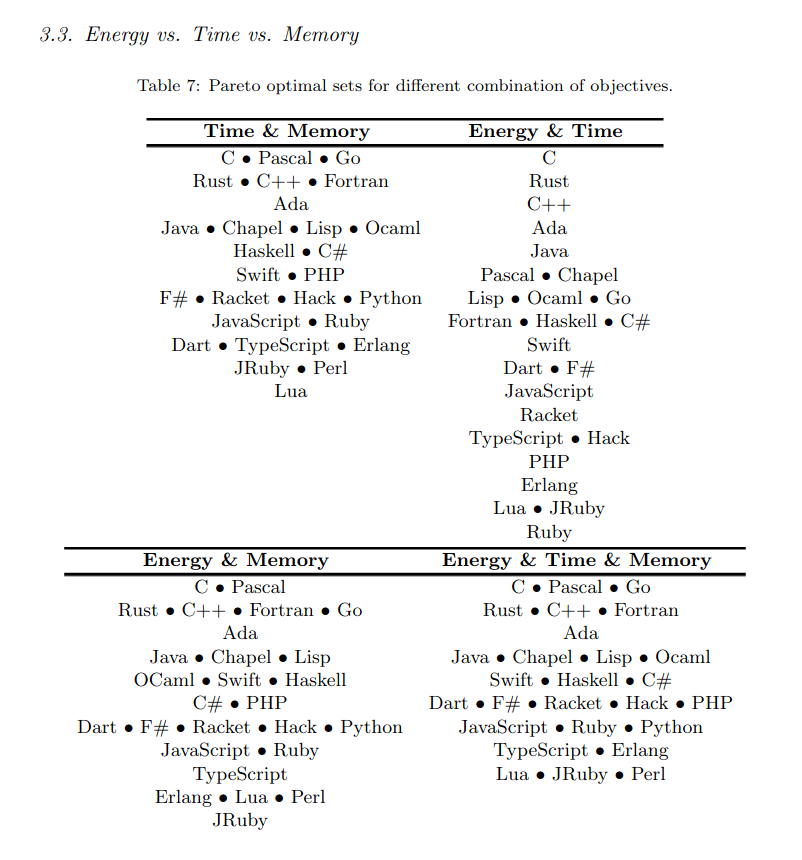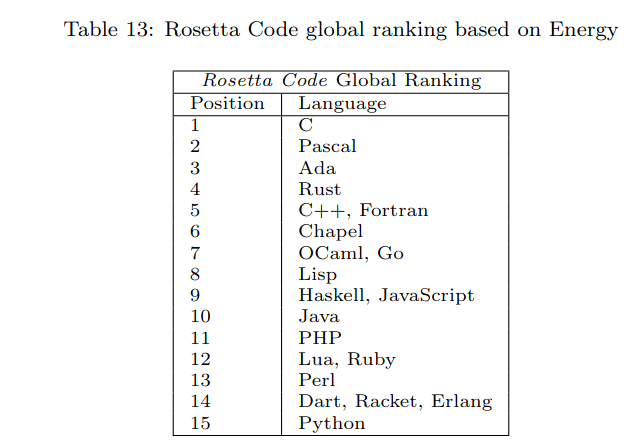Lightning Talk, Leipzig Gophers #32, Martin Czygan, 2022-11-29 19:00 at Gridfuse Leipzig
Document 52021PC0558
... to transform the EU into a fair and prosperous society, with a modern, resource-efficient and competitive economy where there are no net emissions of greenhouse gases in 2050 and where economic growth is decoupled from resource use [...] To reach these objectives, "energy efficiency must be prioritised".
Cf. Small is beautiful: economics as if people mattered (1973) -- found via Cloud Native Go
Let us take a closer look at this 'natural capital'. First of all, and most obviously, there are the fossil fuels. No-one, I am sure, will deny that we are treating them as income items although they are undeniably capital items.
If we treated them as capital items, we should be concerned with conservation: we should do everything in our power to try and minimise their current rate of use; we might be saying, for instance, that the money obtained from the realisation of these assets - these irreplaceable assets - must be placed into a special fund to be devoted exclusively to the evolution of production methods and patterns of living which do not depend on fossil fuels at all or depend on them only to a very slight extent.
Energy efficiency simply means using less energy to perform the same task – that is, eliminating energy waste. -- https://www.eesi.org/topics/energy-efficiency/description
Many papers and whitepapers discussing EE:
Previously, we needed two servers, now with Go one is more than enough.
We replaced a previous service with a Go implementation and we require 1/8 of the resources.
Personally:
- "big data on a budget" projects, processing TBs w/o a cluster (e.g. A data web service, Fuzzy Matching with Command Line Tools and Go, ...)
- 10 tasks (n-body, mandelbrot, binary-trees, ...), 27 languages (functional, OO, imp, scripting)
While the concern on the computers' energy efficiency started by the hardware manufacturers, it quickly became a concern for software developers too [...]
Using RAPL, LWN545745 - to collect energy measurements.
Some tools (on Ubuntu): powertop, powercap-utils, ...
$ cat /boot/config-$(uname -r) | grep RAPL
CONFIG_PERF_EVENTS_INTEL_RAPL=m
CONFIG_PROC_THERMAL_MMIO_RAPL=m
CONFIG_INTEL_RAPL_CORE=m
CONFIG_INTEL_RAPL=mPowertop seems to work w/o RAPL, too.
RAPL support allows PowerTOP to provide more accurate power measurements. -- 01/powertop
Method: system syscall running program, measure via RAPL
| Benchmark | Position (Go) |
|---|---|
| binary-tree | 20/27 |
| fannkuch-redux | 11/27 |
| fasta | 7/27 |
Normalized - Go at 14/27 - consuming 3.23x more than the most efficient language (C) and only 4-5% compared to the least efficient languages (Perl, Python).
| Type | Consumption (J) |
|---|---|
| Compiled | 120 |
| VM | 576 |
| Interpreted | 2365 |
By paradigm:
| Type | Consumption (J) |
|---|---|
| Imperative | 125 |
| OO | 879 |
| Functional | 1367 |
| Scripting | 2320 |
Category: Lowest peak memory usage.
The top 5 languages, also presented in Table 4, with the lowest value were: Pascal (66 Mb), Go (69 Mb), C (77 Mb), Fortran (82 Mb), and C++ (88 Mb);
Also in multi-objective ranking:
In Table 7 we present four multi-objective rankings: time & memory, energy & time, energy & memory, and energy & time, & memory. For each ranking, each line represents a Pareto optimal set, or in other words the Pareto front, that is, a set containing the languages that are equivalent to each other for the underlying objectives. Simply put, each line is a single rank or position.
The most common performance characteristics of software languages used to evaluate and choose them are execution time and memory usage. If we consider these two characteristics in our evaluation, C, Pascal, and Go are equivalent.
Extraordinaire, cette coincidence: Thompson (Bell Labs, C) and Griesemer (Wirth) are among the designers of Go.
TIL: Chrestomathy, here: Rosetta Code (900 tasks throughout of 700 languages)
a collection of literary passages, used in the study of language -- C19: from Greek khrēstomatheia, from khrēstos useful + mathein to learn
There, Go seems to do a bit better.
- 3/15, 5/18, 4/17, 8/21, 9/13 (ackermann), 4/13, 7/17
Overall, Go holds its ground in this benchmark - and since we even have Generics since a few months ...


